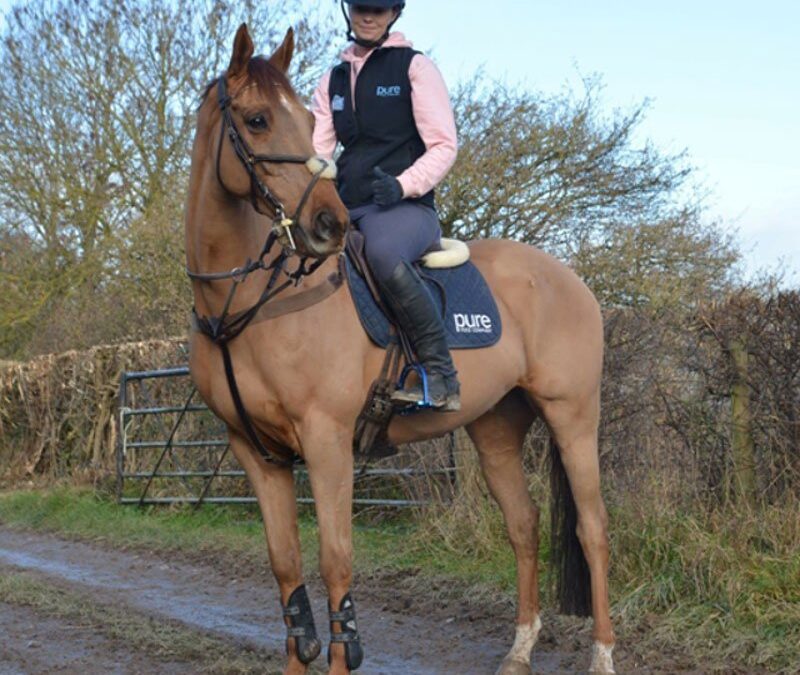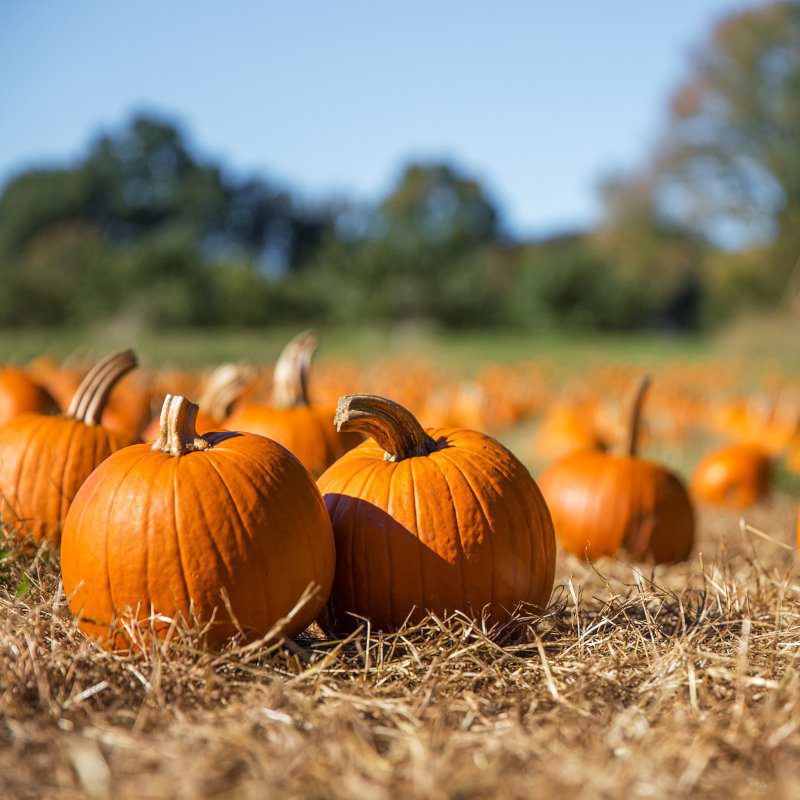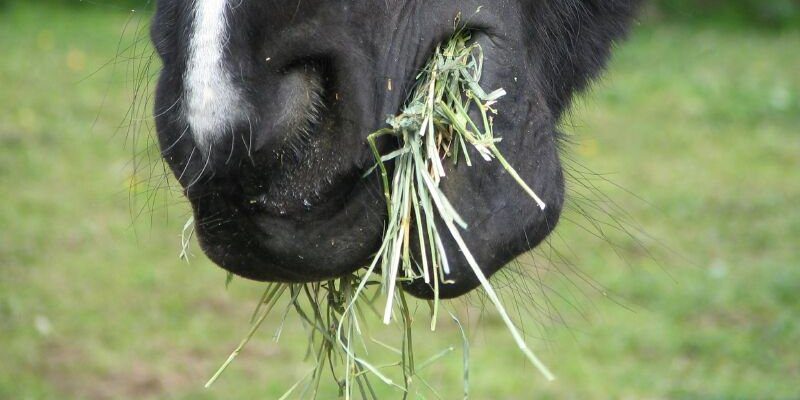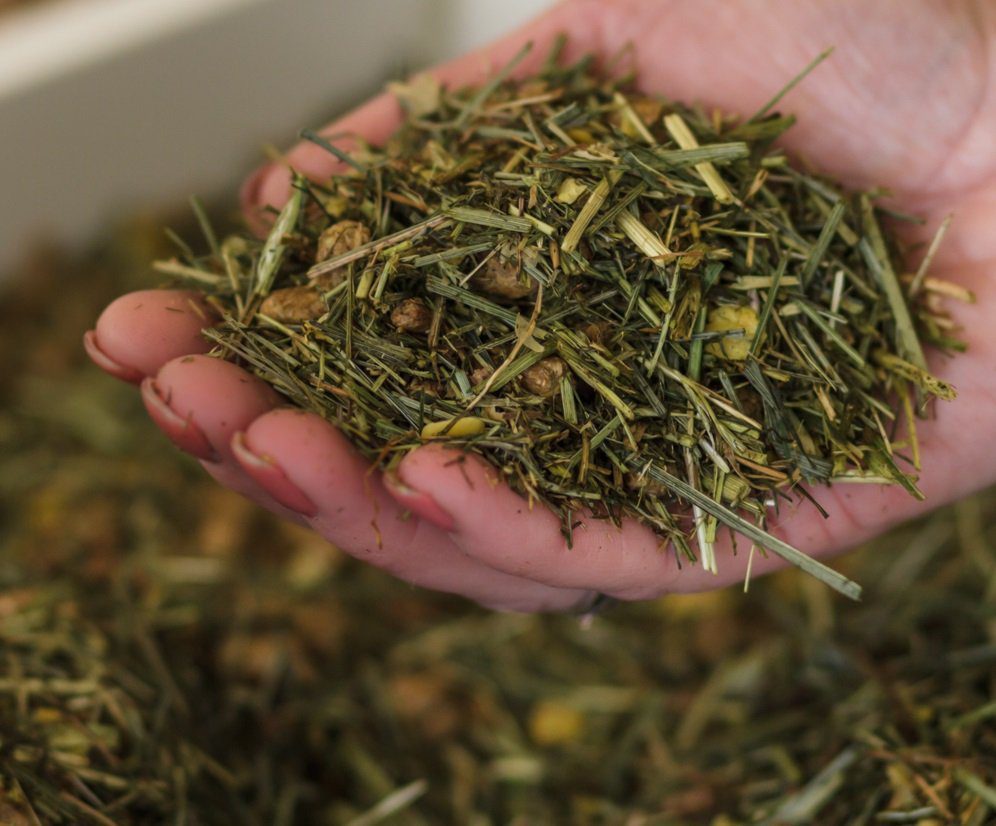Underweight horses
If your horse is currently underweight, we would always recommend consulting your vet to check that there isn’t any underlying health issue causing the weight loss. It is also important to consider dental check -ups and worming to make sure your horse is in top health.
Then it’s time to look at their diet. Firstly their forage.
The horse is a trickle feeder, designed to eat little and often. Their diet should be made up of a minimum of 1.5% of their bodyweight as forage per day. For a 500kg horse this is a minimum of 7.5kg of forage per day. Providing plenty of forage will fulfil both a physiological and psychological need for the horse. Horses are known as hind gut fermenters which means they have a large chamber in their digestive system specifically designed for fermenting fibre. Feeding plenty of forage helps to maintain the pH of the horse’s hindgut. It will also provide bulk to their diet which in turn aids the passage of food through the digestive system. Psychologically, providing ample forage will stimulate the horse’s natural need to chew.
Providing plenty of forage is particularly important during the winter when the grass is sparse. Horses ferment fibre in their hind gut, which produces heat. This helps to keep horses warm on the colder winter days and maintain their body condition. If your horse is underweight you don’t want them using up more energy keeping warm!
It is also important to check the quality of your forage- just because it smells nice doesn’t necessarily mean that it is of good nutritional quality for your horse. Having your forage analysed can help you to determine if the forage is likely to be providing your horse with sufficient energy. It is also advisable to weigh you horse’s forage so that you know how much they are eating.
Next look at their bucket feed and energy requirements.
If your horse is losing weight, they aren’t getting enough energy/ calories in their diet. Energy can be provided through two ways -slow release sources such as fibre and oil or fast release sources such as cereals.
If you want to avoid excitable or fizzy behaviour- perhaps if your horse is in less work due to the weather, stabled more over winter or naturally energetic chose slow release energy.
Oils such as linseed are great for increasing the calorie content of the diet. Linseed is also high in omega 3 fatty acids and great for supporting healthy skin and coat condition.
Feeds that are fibre and oil based such as our Pure Condition are also great for helping to maintain weight. The slow release energy will help to add condition, whilst keeping your horse calm.
Contact our nutritional team by emailing nutrition@purefeed.com or calling 01458 333 333 for advice on keeping your horse at a healthy weight this winter. You can also request a free diet plan for your horse.
Overweight horses
Some horse owners can face the opposite problem with their horse; they are carrying too much weight. Most horses will naturally drop off a bit over winter and put on weight in the spring- summer months when the weather is milder and the grass is generally of better quality. However, for natives or good doers this isn’t always the case. If your horse comes out of winter overweight, and then puts on more excess weight with the spring grass there is a real health concern. If this sounds like your horse why not use winter to your advantage to help your horse lose some excess weight.
Tips include:
Don’t over rug your horse– that way they will use some of their energy keeping warm. Remember horses don’t feel the cold in the same way we do so don’t be tempted to put an extra rug on just because you feel cold.
Maintain regular exercise where ever possible- even a brisk walk for your horse will use some energy.
Chose low calorie feeds such as our Pure Balance or Pure Fibre Balance. These are designed to be fed in smaller quantities whilst still ensuring that your horse is getting the important daily nutrients that they require including vitamins, minerals and amino acids. Grazing is often lacking in these key nutrients particularly during winter so it is important to make sure your horse is getting these from their feed.
Feed little and often– remember horses are trickle feeders. If your horse is overweight don’t just reduce the amount of hay you are giving as this could lead to further health problems if they aren’t getting enough fibre. Instead consult your vet or a nutritionist to devise a diet to suit their needs and help them to lose some excess weight.
Check your forage– forage should make up the bulk of your horse’s diet but do you know how good it is? It is always helpful to know the quality of your forage so you may want to consider having your forage analysed. If your horse is a good doer, choosing low calorie options rather than reducing the quantity you are feeding is better for their welfare.






